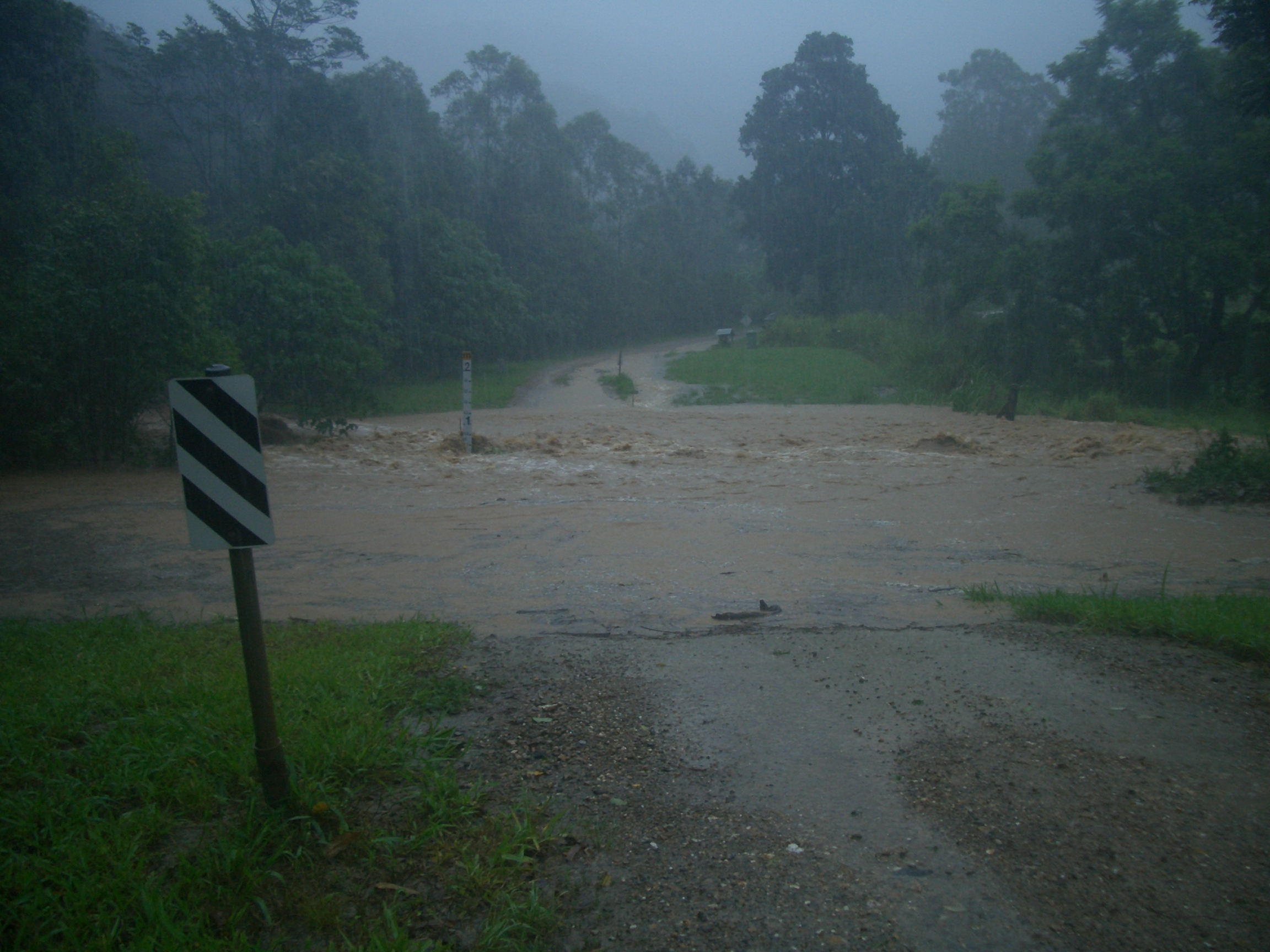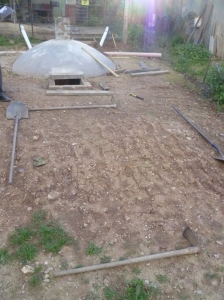


|
Commenced:
|
01/03/2012 |
|---|---|
|
Submitted:
|
25/03/2012 |
|
Last updated:
|
28/10/2020 |
|
Location:
|
93 Golden Gully Road, Kin Kin, QLD, AU |
|
Phone:
|
0754854664 |
|
Website:
|
http://permeco.org |
|
Climate zone:
|
Sub tropical |
(projects i'm involved in)
Project: PermEco Inc.
Posted by Zaia Kendall over 11 years ago

As reports come in about record cold weather in the USA and Australia just experienced record heat in our state of Queensland, where apparently native bees have died and bats and flying foxes have fallen from the sky due to heatstroke, we at the Permaculture Research Institute Sunshine Coast are preparing for another busy year educating people to prepare for what may be coming. 
Despite all the scientific bickering about global warming and climate change, it is obvious by observing nature and its cycles that we are currently undergoing a major change. Seasonal weather is changing, the wet season starts later here and lasts into winter (normally the wet season is our summer, starting November/December and finishing around April), winter is milder here (many animals were displaying spring behaviour last winter) and we are getting extremely hot days (41 - 45 degrees Celsius for 4 days last week, which is very unusual). Things are changing, and no matter whether you believe it being due to climate change or not, we need to prepare for change to come. As we are unclear what these changes are, we can only do our best to prepare for extreme weather conditions, be it extreme heat, cold, wind or water.
"Prepare for disaster" is a motto we all need to start living by. Not to be pessimistic, but to take positive action in order to ensure the continued survival of us as humans. This may sound grim, but if we just look at everything that is happening in the world today, from nuclear disaster and subsequent oceanic pollution, to fracking and other methods of resource extraction which is extremely polluting, to simply noticing the price of food consistently going up, we need to be able to grow our own food, create a supportive community around us and be prepared for whatever may come our way.
We are currently already talking about taking the following steps to ensure a better chance for us to cope with possible weather changes:
- Creating another shade house (we currently have a small one, we need to make another bigger one so that we can protect certain plant species)
- More water on the property and longer retention methods (more dams and swales, so that water is slowed down and stored on the property)

- Becoming more self reliant for our energy needs (investing in more solar panels to run the property and finishing the bio-digester to have bio-gas operational)
- Researching possible plant species that will cope with a warmer, dryer climate, as things seem to be heating up here in Queensland (and the rain seems to come in extremely heavy downpours)
Of course, for the Northern Hemisphere this may be totally different. Water retention methods and energy self reliance are always important, no matter where you are. But people in the Northern Hemisphere may need to set up hothouses instead of shade houses and look at different, cold hardy plants. People in the Northern Hemisphere will have to observe what is happening in nature for them, and how their cycles are changing.
We also may need to focus more on annuals rather than perennials in our garden as we will be able to change annuals quicker if we discover they cannot handle the weather changes. We need to put more systems in place so that plants will be able to cope with heavy water inundation or extreme heat.
Some people may find this all to be needless worrying, others may find it doomsaying. But nobody ever regretted being prepared. For we do not know what may come, and in my opinion (which does not count for much, but which I will give anyway) we have passed the tipping point. Whatever may have caused us to be in this position, I believe weather conditions will worsen in the years to come. And here at PRI Sunshine Coast, we strongly believe in being prepared.
The PRI Sunshine Coast has only 4 places available for the 72 hour Permaculture Design Certificate starting 26 January at the time of this publication. Outside course hours we offer many opportunities to become involved in community (including self reliance) activities, which will enrich your Permaculture experience.
You must be logged in to comment.
Note: The various badges displayed in people profiles are largely honesty-based self-proclamations by the individuals themselves. There are reporting functions users can use if they know of blatant misrepresentation (for both people and projects). Legitimacy, competency and reputation for all people and projects can be evidenced and/or developed through their providing regular updates on permaculture work they’re involved in, before/after photographs, etc. A spirit of objective nurturing of both people and projects through knowledge/encouragement/inspiration/resource sharing is the aim of the Worldwide Permaculture Network.
 |
MemberA member is a permaculturist who has never taken a PDC course. These cannot become PDC teachers. Members may be novice or highly experienced permaculturists or anywhere in between. Watch their updates for evaluation. |
|---|---|
  |
Permaculture MatchmakerOne of these badges will show if you select your gender and the "I'm single, looking for a permaculture partner" option in your profile. |
 |
PDCPeople who claim to have taken a Permaculture Design Certificate (PDC) course somewhere in the world. |
 |
PDC VerifiedPeople who have entered an email address for the teacher of their PDC course, and have had their PDC status verified by that teacher. Watch their updates for evaluation. |
 |
PRI PDCPeople who’ve taken a Permaculture Research Institute PDC somewhere in the world. |
 |
PDC TeacherPeople who claim to teach some version of PDC somewhere in the world. |
 |
PRI TeacherWith the exception of the ‘Member’ who has never taken a PDC, all of the above can apply to become a PRI PDC Teacher. PRI PDC Teachers are those who the PRI recognise, through a vetting board, as determined and competent to teach the full 72-hour course as developed by Permaculture founder Bill Mollison – covering all the topics of The Designers’ Manual as well as possible (i.e. not cherry picking only aspects the teacher feels most interested or competent in). Such teachers also commit to focussing on the design science, and not including subjective spiritual/metaphysical elements. The reason these items are not included in the PDC curriculum is because they are “belief” based. Permaculture Design education concerns itself with teaching good design based on strategies and techniques which are scientifically provable. PRI PDC Teachers may be given teaching and/or consultancy offerings as they become available as the network grows. |
 |
Aid WorkerThe individual with this badge is indicating they are, have, or would like to be involved in permaculture aid work. As such, the individual may or may not have permaculture aid worker experience. Watch their updates for evaluation. |
 |
ConsultantThe individual with this badge is indicating they are, have, or would like to do paid permaculture design consultancy work. As such, the individual may or may not have permaculture consultancy experience. Watch their updates for evaluation. |
 |
Community ProjectCommunity projects are projects that help develop sustainable community interaction and increase localised resiliency. |